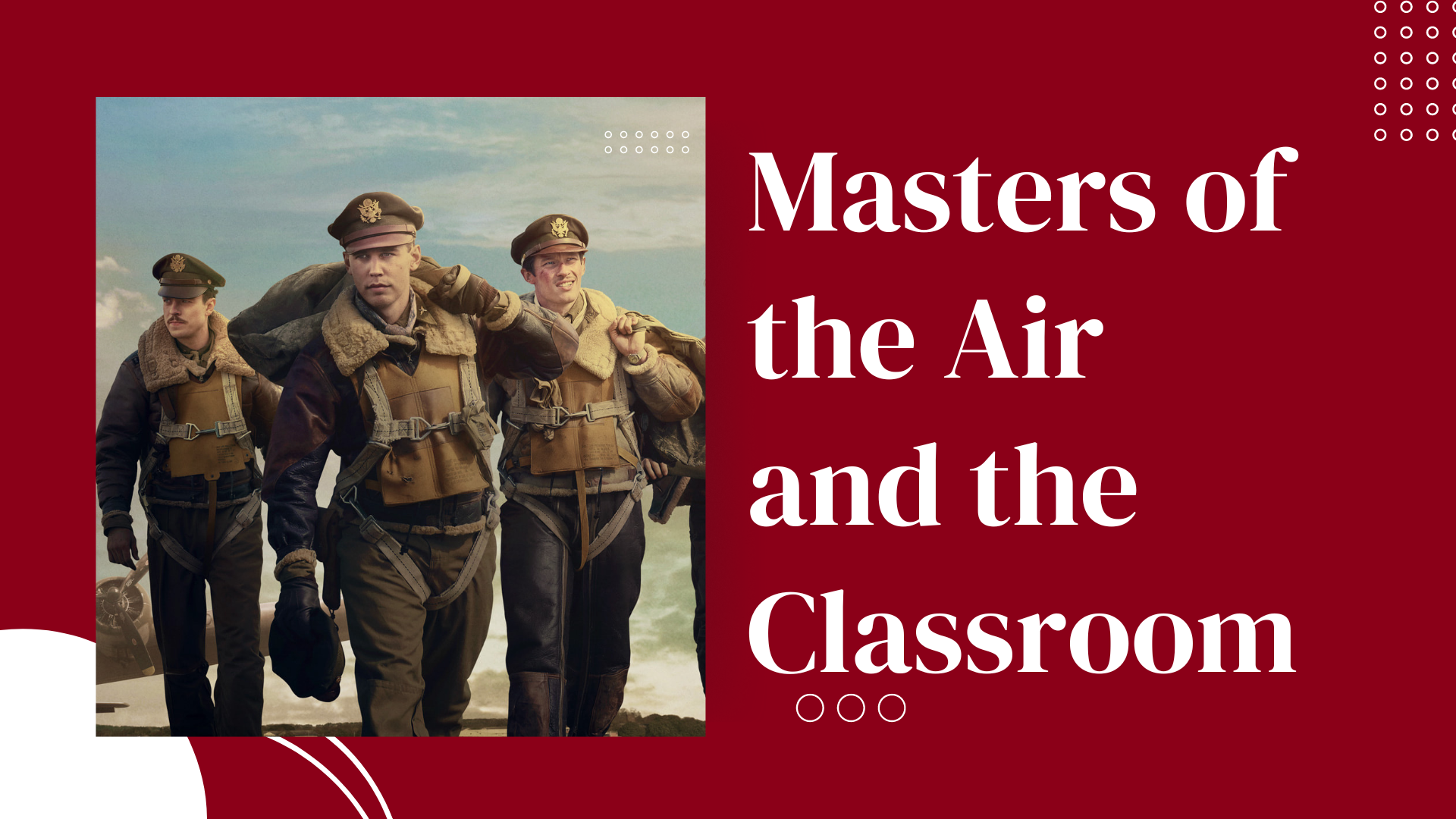The 2024 AppleTV series Masters of the Air has renewed interest in the air war that took place over European skies between 1939 and 1945. The new television series is an opportunity for an educational evaluation of the happenings during the Second World War and prompts unique discussion and creative learning experiences in the classroom according to Cumberland University Adjunct Instructor of History, Dr. Luke Truxal.
Truxal, an air power historian, recently released a book titled Uniting Against the Reich, and has been a featured guest on multiple well-known podcasts like “Historians at the Movies” where he discussed the new AppleTV series.
The following is Dr. Truxal’s shared insight as a subject matter expert and historian:
Masters of the Air, produced by Tom Hanks and Stephen Spielberg, creates current conversation around a popular academic topic and subsequently encourages students of all ages to consider the history of those who served in combat during war times and the ties they hold to our lives today.
The series has the potential to inspire diverse learning that can be implemented across a variety of disciplines, reminding us that Navigators used complex mathematical equations while flying at high altitudes wearing an oxygen mask to get the planes to their final destination linking topics like Statistics, Algebra and Exercise Science. Officers often face the burdens of leadership and a need for psychology while the capabilities and limitations of technology during war can become points of discussion integrated in a variety of courses. Masters of the Air presents an opportunity for both students and faculty to engage in the subjects that interest them in new ways. Students are ready for us as educators to reach them using various tools at our disposal and television and film are familiar methods for connection.
The series starts with the United States’ entry into the War on December 7, 1941. The United States had to rapidly build air forces capable of striking German and Axis targets in Europe in only a matter of months. The Eighth Air Force, based out of the United Kingdom, first struck Axis-occupied France on August 17, 1942. This attack marked the beginning of the American participation in the air war against Germany and the events of the television series began the following year after the first raid in June of 1943.
Without revealing spoilers for those who have not seen the show, these are the dark days of the American bomber offensive. The Germans have the edge in experience and numbers, while the Americans are learning many hard lessons about what does and does not work in the air war in real time.
There are multiple lessons to be learned from the series other than those that apply to academia. First and foremost, these are young men and women being portrayed in the series. Many of whom are the same age as the students that we engage in the classroom, yet, they are asked to shoulder incredible responsibilities. They have to decide who lives and who dies. Young bombardiers hold the lives of thousands of civilians in their hands when they try to strike an industrial target. Young men bailing out choose whether or not to save a friend or themselves. Ground crews are responsible for the lives of ten men every time they work on a plane to ensure it is combat-ready. Women provide support in boosting morale, ferrying airplanes (not shown), acting as nurses, fighting as members of the resistance, or simply comforting these men as they deal with the nature of the high-altitude combat. For a generation of young men and women, these are their formative lives and will change them forever.
Another unique lesson that the series offers is insight into the nature of warfare. War is ugly and brutal and only escalates over time. We see that displayed throughout the series as the Americans inch further away from daylight precision bombing toward the idea of attacking German cities and civilians. As nations suffer higher military and civilian losses, the shackles they put on themselves to fight clean wars eventually come off.
With the Russo-Ukrainian War (2022-present), which is an escalation of the War in the Donbas (2014-2022), the likelihood of a war between NATO and the Russian Federation only increases. China’s aggression in the Pacific is also concerning for the United States and its regional allies. Iran’s aggression in the Middle East has already resulted in American forces being locked in combat against Iranian proxies, with American lives being lost. The generation of students that come through our halls today will have to grapple with military and diplomatic affairs in ways that I never even dreamed of when I graduated from Abilene Christian University in 2009. It is better for students to gain an introduction to the nature of warfare now, even if done through a television series. This generation of students, leaders, and voters will be the ones who will lead us through an uncertain future.


